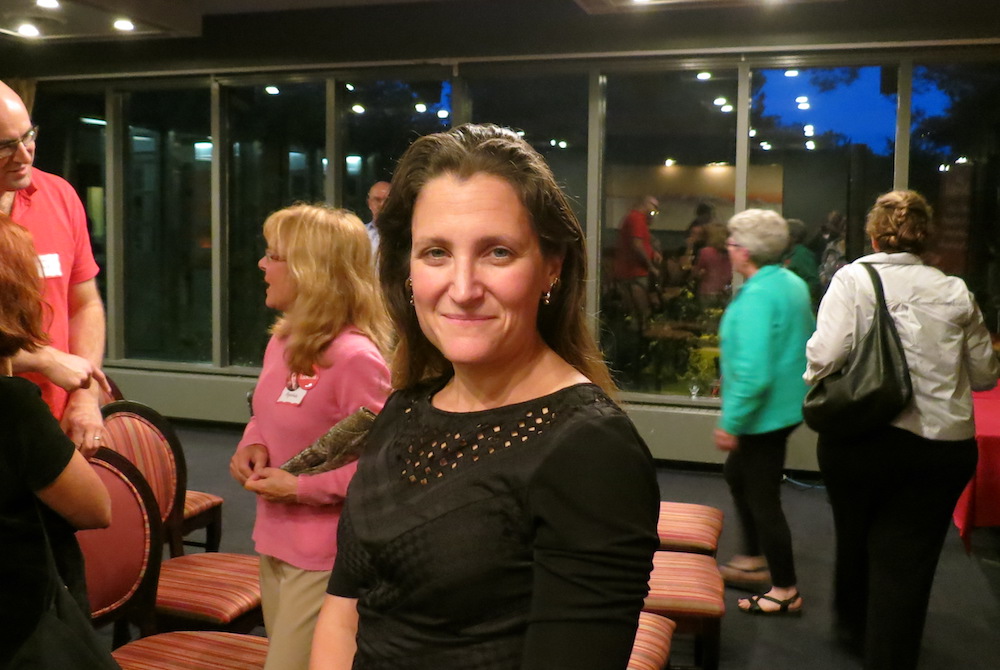In the stampede by Canadian politicians of all ideological stripes to support Venezuela’s self-declared “interim president,” has anyone given even a nanosecond’s thought to the impact the handover of the troubled South American petrostate’s government to Juan Guaido would have on Alberta’s oilpatch?
It won’t be pretty.
The federal government’s headlong rush to facilitate regime change in Venezuela is the sort of thing that would normally have Conservative politicians like Alberta Opposition Leader Jason Kenney darkly hinting Prime Minister Justin Trudeau is secretly trying to wreck Alberta’s oil industry.
Yet, there’s not a peep of that in this case, as the Conservative opposition parties in both Ottawa and Edmonton seem to be completely on board with U.S. President Donald Trump’s Venezuelan wag-the-dog scheme.
Ditto the NDP. Alberta’s New Democratic government seems to have said nothing pro or con. Federal NDP leader Jagmeet Singh’s messaging is so muddled, it’s hard to know what the party’s policy is, or if it will be the same an hour from now.
Foreign Affairs Minister Chrystia Freeland, who acts as the Liberal government’s spokesperson on this file, sounds persuasive, even if what she says often makes considerably less sense on close examination.
Regardless, there’s not a word of acknowledgement from Freeland or anyone else that a takeover by a politician who has promised to hand his country’s huge oil reserves over to the U.S. petroleum industry might have big implications for Alberta, let alone what to do about them.
Freeland tells Canadian protesters who objected to Ottawa undermining the government of Venezuelan President Nicolas Maduro that they enjoy democracy and, “I am sad to say, political protesters in Venezuela do not.” Meanwhile, her government takes the fact tens of thousands are demonstrating against the Maduro government in Venezuela as an argument for regime change.
In an interview earlier this week with the CBC’s Anna Maria Tremonti, Freeland insisted Canada must help the suffering people of Venezuela, but supported U.S. actions that have denied them food and medicine. U.S. sanctions may not be the principal reason for Venezuela’s economic crisis, but they are at least part of the cause of the country’s refugee crisis.
Freeland defended Canada as “a rule of law country” in the context of our current disputes with China over the arrest of a Chinese national in Canada at the behest of the United States, but articulately supported the overthrow of the elected president of a foreign country on the grounds his domestic opponents say his election was rigged. She then observed, accurately enough, “If we let it become a law of the jungle kind of world, that is not a good world for Canada.”
She told Tremonti: “We need to be working really, really hard to maintain that rules-based international order and to build coalitions of like-minded countries who are going to work to maintain that order.” Seconds later she said: “That’s something that we’re doing in the Lima group,” which is pledged to force out Venezuela’s government.
Every word was delivered in tones both confident and reassuring.
Perhaps the explanation for this seeming cognitive dissonance, as Toronto Star columnist Thomas Walkom recently suggested, is that Ottawa doesn’t really give a hang about Maduro’s government but is looking for a way to suck up to Trump’s.
Regardless, the potential for unintended consequences in Alberta’s oilpatch seems to have been ignored completely, if it has even occurred to anyone as a possibility.
The problem for Alberta arises from our man Guaido’s promise to end the Maduro government’s policy of requiring the national oil company Petroleos de Venezuela to hold a controlling stake in any joint venture with a foreign oil company. That would open the door to heavy U.S. corporate involvement in the vast Venezuelan oil reserves, said to be the largest in the world, and which include oilsands similar in size to Alberta’s. That, in turn, would end the United States’ blockade of Venezuelan oil, part of its campaign to topple the Maduro government.
This is potentially serious for Alberta because Venezuela is conveniently located just across the Caribbean Sea and the Gulf of Mexico near the U.S. refineries along the Gulf Coast of Texas, where most of Alberta’s low-quality bitumen nowadays ends up.
In the simplest terms, one likely effect of this unfolding scenario would be to flood those American refineries with cheap, heavy oil from Venezuela.
After that, it’s just a matter of supply and demand. A big increase in supply, conveniently located for inexpensive ocean transfer, will depress the price fetched by Alberta oil, especially low-quality oilsands bitumen.
Given the size of Venezuela’s reserves, the low prices could last for a very long time — possibly until the planet’s transition from a fossil fuel economy is complete.
U.S.-owned fossil fuel companies that have resisted building refining capacity in Alberta because they don’t want to compete with underused capacity at their Gulf Coast operations will have no problem replacing their Canadian supplies with cheaper Venezuelan crude. They have no loyalty to any jurisdiction, or to any notion of “ethical oil,” only to the best price and the best return on investment.
Where will Alberta be then? You’d think that would be a matter of concern for both federal Canadian and Alberta politicians, yet no one who holds office or is likely to appears to have given it a moment’s thought.
No doubt about it, Venezuela is a catastrophic mess. But should Canadian governments be advancing a solution to its troubles that may well make things worse and will certainly hurt Alberta’s essential oil industry and the Canadians who work in it?
This post also appears on David Climenhaga’s blog, AlbertaPolitics.ca.
Image: David Climenhaga
Help make rabble sustainable. Please consider supporting our work with a monthly donation. Support rabble.ca today for as little as $1 per month!




